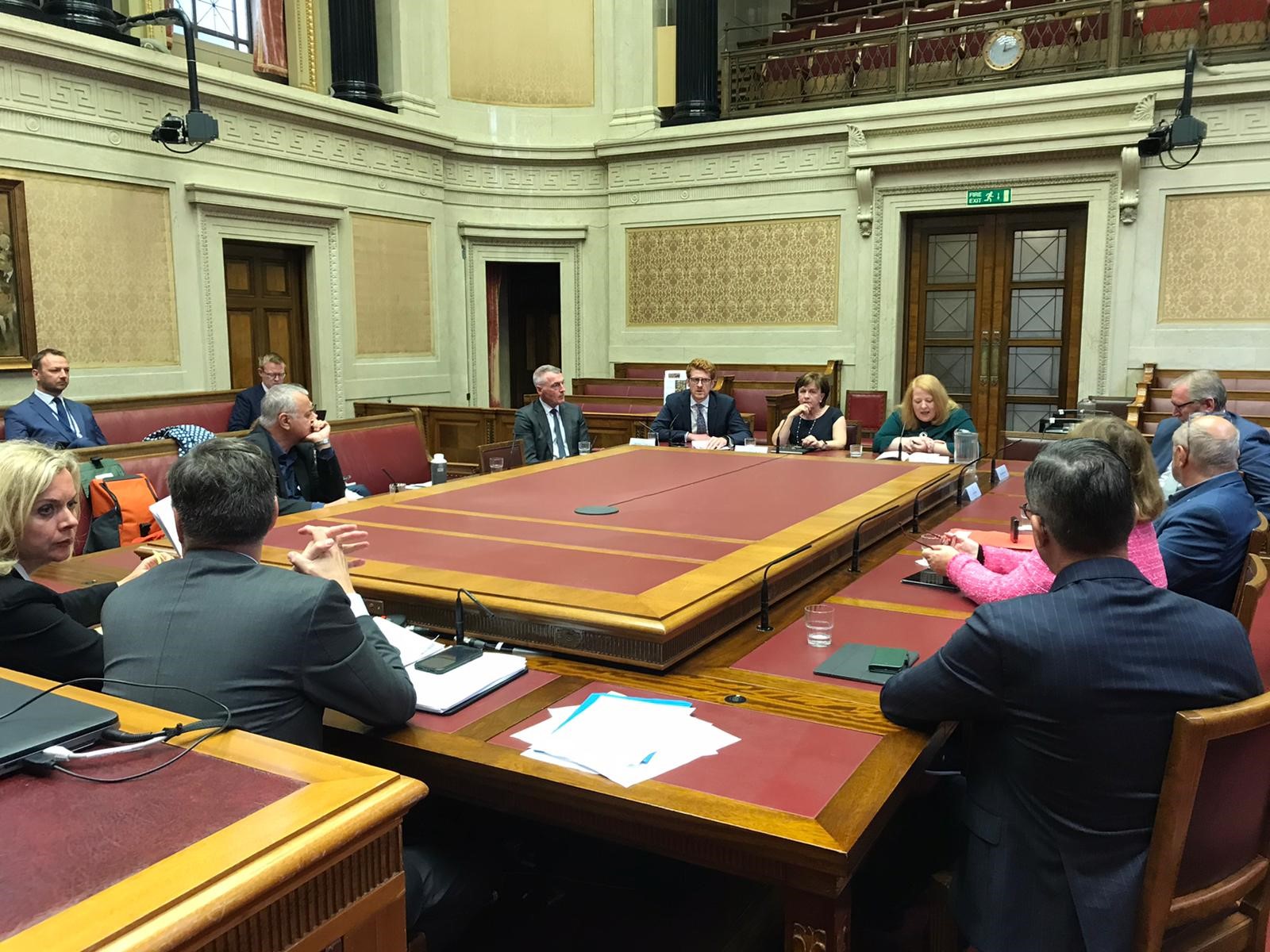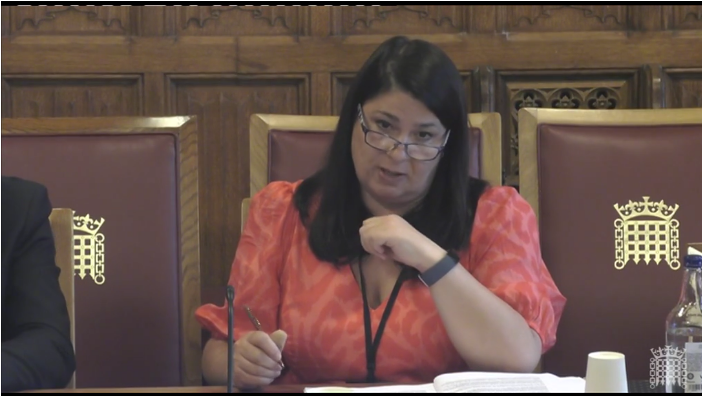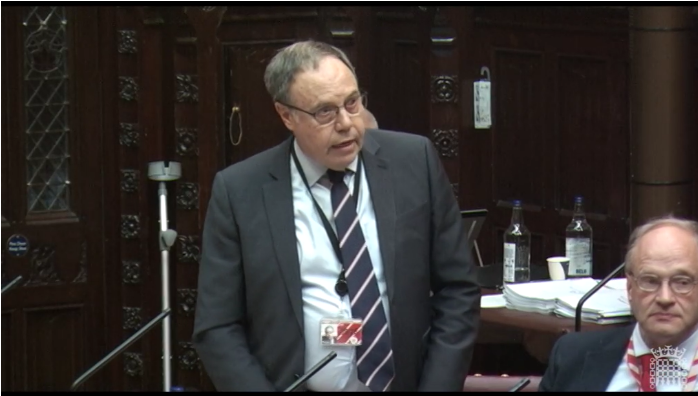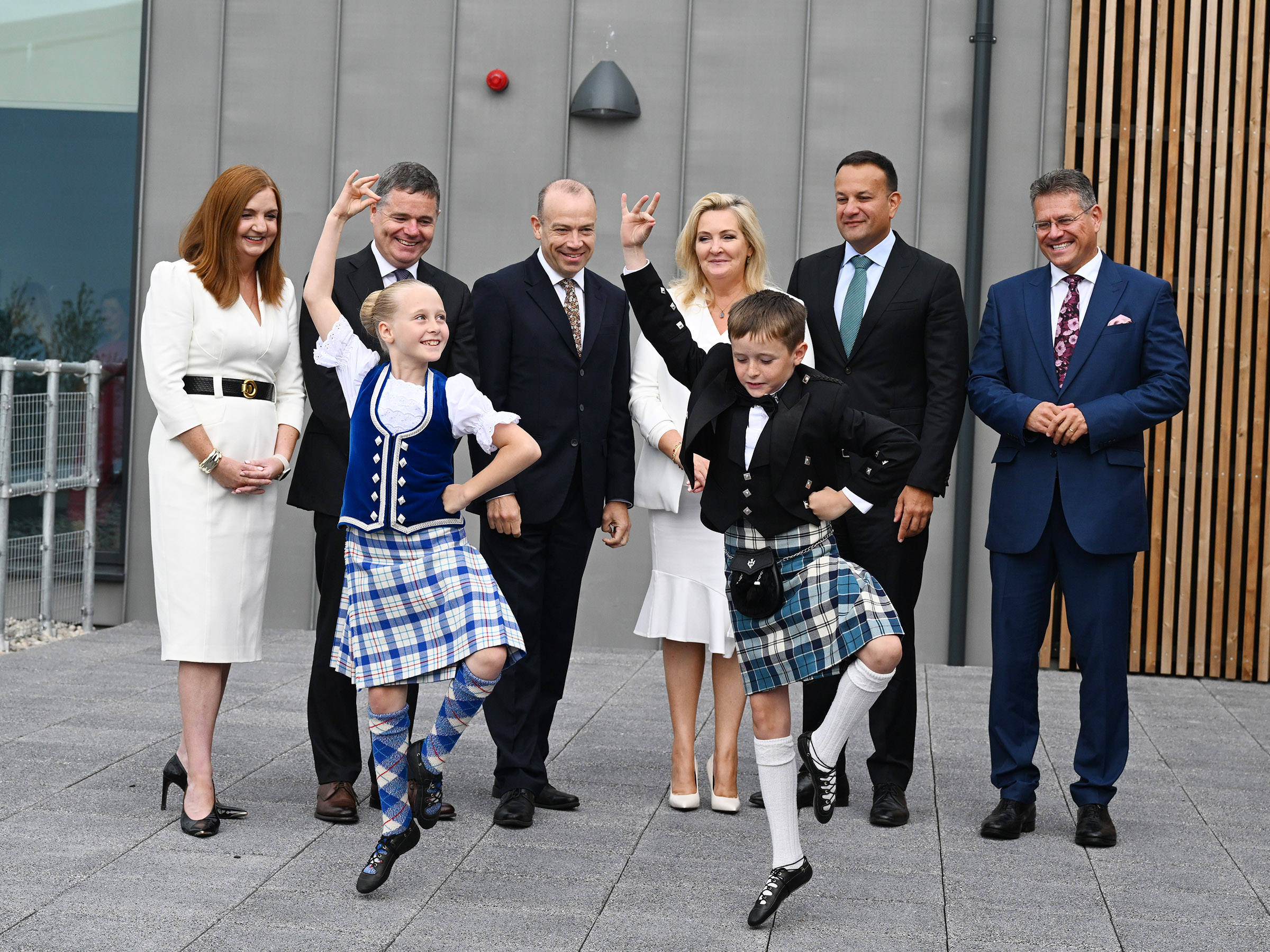Brexit & Beyond newsletter
18 September 2023
Welcome to the 18 September 2023 Brexit & Beyond newsletter
The European Parliament Committee on Foreign Affairs is visiting Northern Ireland. The Lords Sub-Committee on the Protocol has been hearing evidence from businesses on the Windsor Framework, which will be implemented from October. The Government has responded to the committee’s report on the Framework, which the House of Lords debated last week. A two-day investment conference took place in Belfast last week. Parliamentarians are assessing the legislation required to implement the Windsor Framework. Legislation has been published to preserve some items of Retained EU Law. The UK and EU announced €1.14 billion in PEACE PLUS funding.
Tomorrow, the Secretary of State for Northern Ireland will give evidence to the Sub-Committee on the Windsor Framework.
- European Parliament visit to NI
- Windsor Framework: the view from business six months on
- Government defends the Windsor Framework
- Lords debate the Windsor Framework
- Implementing the Windsor Framework
- Northern Ireland investment conference
- Retained EU Law
- PEACE PLUS funding announcement
- Other news
European Parliament visit to NI
Today, the European Parliament Committee on Foreign Affairs is visiting Northern Ireland, its first official visit since Brexit. Following their courtesy call with the Speaker, the delegation met with Declan Kearney, Diane Dodds, Naomi Long, Doug Beattie and Matthew O’Toole to discuss the Windsor Framework. The Committee will also meet representatives of civil society, business and intergovernmental organisations in Armagh, Belfast and Newry.
The delegation is led by David McAllister, and includes Nathalie Loiseau, who co-chairs the EU-UK Parliamentary Partnership Assembly.

The European Parliament delegation meeting NI MLAs in Parliament Buildings
Windsor Framework: the view from business six months on
On Wednesday, the Lords Sub-Committee heard evidence from business sectors who gave their verdict on the Windsor Framework (WF), less than three weeks before some aspects of the Framework enter into force. Mark Tait, Director of Target Transport, said the WF simply pushes the bureaucracy further up the supply chain to hauliers. He questioned why the Government is again delaying its own border controls because of inflationary concerns, but at same time about to increase bureaucracy between GB and NI. Tait said there are many unanswered questions and variables, not least around groupage and what happens if one red lane item is pulled: what happens to the remainder and who pays for the delay and cost, he asked. Stuart Anderson, Head of Public Affairs at the Northern Ireland Chamber of Commerce and Industry, said that short timelines have driven the implementation of the WF and caused processes to be more laborious than needed. He said it’s too early to draw any conclusions and called for more clarity on what the red and green lanes mean in practice.
Alexander Kinnear from the Ulster Farmers' Union (UFU) said, “quite irritatingly”, the WF doesn’t address certain issues. One of those is veterinary medicines and he suggested there is a “stalling in anybody wanting to do anything about it…that’s really disappointing”. He said the WF also doesn’t address livestock movements from NI to GB, and trade in this sector has collapsed. Kinnear commented that some of the labelling requirements for plants etc. may not even be practical.
Michelle Riddalls, CEO of PAGB, the consumer healthcare association, said the arrangements for medicines did appear to solve the problems, however there are concerns about implementation. She explained the time and effort involved for industry to comply with the new labelling requirements, and they are still concerned that they won’t be able to make the changes. Riddalls also said they are having issues with food supplements (some include products of animal origin), and joint packs with Ireland, which now have to have ‘not for EU’ labels.

Michelle Riddalls, CEO of PAGB, the consumer healthcare association | Source: UK Parliament
Peter Hardwick of the British Meat Processors Association also questioned the relative free movement of goods to the GB market from the EU, while GB operators will have to comply with customs and certification requirements to supply another part of UK. He said the NI Retail Movement Scheme was pitched as a solution to groupage, but he has yet to see a NI haulier who thinks it will work.
Andrew Opie from the British Retail Consortium said parts of agreement are complex and prevent some food from being sent to NI, although there are now some short-term easements in place. ‘Rest of world’ products, which move via ports in GB, are not processed in GB and then sent to NI, cannot use the green lane, e.g. Thai cooked chicken. Opie said it is “unfeasible” to have one red lane product in the green lane. Another issue is whether food manufacturers will change their labelling to enable supermarkets to supply those products. Opie added that there is uncertainty about whether products are covered by EU or UK regulations e.g. household cleaning products. For Opie, divergence is an emerging risk, noting the EU’s deforestation regulation, which may impact the products they sell in NI. He concluded that if there isn’t a solution for ‘rest of world’ goods or on labelling, they will have to change supply chains, and choice will change for NI consumers.
The Secretary of State for Northern Ireland Chris Heaton-Harris will give evidence to the Committee tomorrow morning.
Government defends the Windsor Framework
Last week, the Government responded to the Lords Sub-Committee’s report on the Windsor Framework (WF). It emphasises throughout that “to deliver the full range of its benefits we do need to see a Northern Ireland Executive and Assembly up and running.” The Committee had concluded that in some areas the Windsor Framework “will be more burdensome than the Protocol as it has operated to date with various grace periods and derogations”. The Government contends that the WF is “a far better solution” than the grace periods and corrects some of the assertions in the committee’s report. The Government disagrees with the suggestion that Northern Ireland manufacturers could be at a competitive disadvantage as they still have to follow EU rules (compared to GB manufacturers who can follow GB rules and supply NI), highlighting that they have full access to the EU market, and noting the arrangements also protect the dairy and meat processing sectors in Northern Ireland. It says this is “consistent with existing devolution arrangements which mean it is entirely possible to have different standards across the UK.”
While the WF eases the movement of plants to NI, several species remain prohibited from moving GB-NI. The Government says that since February, eight bans on plant movements have been lifted, including hawthorn, crab apple and maple species.
The Government does not have concerns about the supply of medical devices to Northern Ireland (something the industry has called for clarity on) but continues to monitor any potential issues.
The Government is clear that “there needs to be a long-term and permanent solution which maintains the uninterrupted flow of veterinary medicines into Northern Ireland from Great Britain…[and is] currently engaging extensively with industry on the products at risk,…future arrangements must take into account the overwhelming reliance of Northern Ireland on veterinary medicines from Great Britain or moved via Great Britain.” In contrast, European Commission Vice-President Maroš Šefčovič has said the matter had been discussed in great detail and thinks the three-year adjustment period is “quite an ample time to adjust, to adapt to the new situation” - when EU rules on veterinary medicines moving from GB to NI will apply.
The Government sets out further detail about new customs and SPS controls, which will be introduced from 31 January 2024, for Irish goods moving directly from Ireland to Great Britain. Additionally, from January 2024, food and feed products will need to be linked to NI registered or approved food or feed business in order to be considered a ‘Qualifying Northern Ireland Good’ and exempt from related import requirements. The Government states that “Alongside customs anti-avoidance rules, we will ensure measures are in place to prevent avoidance of SPS import processes and, therefore, abuse of the arrangements for Northern Ireland's unfettered access to the Great Britain market.” This includes potential financial penalties, SPS penalties and enforcement action. Existing spot checks at ports and sharing information and intelligence between authorities will continue.
Regulatory divergence is the number one concern for businesses according to the committee. The Government says the UK-EU Trade and Cooperation Agreement processes, the new WF structures - such as the VAT and excise Enhanced Coordination Mechanism, the Special Goods Body and new dedicated technical groups under the Joint Consultative Working Group - are means to discuss and resolve regulatory issues and how that may impact Northern Ireland’s place in the UK internal market. The Government confirms that the Northern Ireland Executive will generally form part of the UK's delegation at these meetings.
The committee has asked for more information on the Stormont Brake, but the Government states, “we do not propose to speculate on any theoretical uses of the Brake in practice, given its operation will depend on the specific circumstances at play during any notification from the Assembly.” It remarks that the Government “will be under a statutory obligation to operate the Brake whenever the conditions have been met, and will be accountable to Parliament and potentially the Courts for doing so.”
Lords debate the Windsor Framework
The Sub-Committee’s report was also debated by the House of Lords on Monday. Lord Frost, who negotiated the original Protocol with the EU, said, that under the Windsor Framework, “The EU is still the goods and customs regulatory authority in Northern Ireland; its provisions are implemented by EU laws, not ours.” He called the Stormont brake “a trivial and probably unusable add-on”. He added that the Framework “creates a huge incentive to avoid diverging from the EU in relevant areas, because doing so will make its arrangements less and less workable, more vulnerable to EU interdiction and harder to defend as a success.”
The Sub-Committee has repeatedly called for the Government to produce a register of regulatory divergence - in its response the Government does not commit to publishing one. Baroness O’Loan said, “Businesses cannot be expected to derive essential commercial information on regulatory issues by way of Explanatory Notes or Memoranda on the potential impacts of proposed legislation.” The Earl of Kinnoull remarked that regulatory divergence “is proceeding apace” and will “add a lot of long-term complexity to the relationship between the UK and the EU and will throw up many issues. It will need to continue to be watched.” He noted that the Government has not responded to the committee’s points on an SPS agreement.

Lord Dodds speaking during the debate | Source: UK Parliament
Lord Dodds said the Protocol and Windsor Framework “are really the same; there are a few tweaks here and there, but they are fundamentally the same mechanism”. He told peers, “Legislation which is currently being considered by the Government must address the entirety of Northern Ireland’s place within the United Kingdom and remove impediments from Great Britain to Northern Ireland as well as reaffirming what we have for Northern Ireland to Great Britain.”
Lord Ahmad, Minister in Foreign Office, responded to the debate. He had been asked about the publication of the consolidated text of the Windsor Framework. He said the full set of framework legal texts is online and said, “We do not plan to consolidate the text further.” Queen’s University’s post-Brexit governance project has published a consolidated version of the legal text.
Lord Ahmad confirmed that the new joint UK-EU stakeholder arrangements are already in operation. The Minister said that while he has heard the concerns expressed, in the Government’s view, “the framework addresses the underlying issues that contributed to the social, political and economic instability in Northern Ireland as a result of the old protocol.” As in the Government’s written response, he outlined their view that “the previous arrangements pale in comparison to the framework’s green lane arrangements.” He noted the first phase of the green lane arrangements will begin in a few weeks and “when this happens, practical points will surface that we will seek to address.”
Implementing the Windsor Framework
The Draft Windsor Framework (Enforcement etc.) Regulations 2023 were debated in the Commons on Monday 11 September. Minister for Food, Farming and Fisheries Mark Spencer said they allow for “the significant, pragmatic and proportionate enforcement of key elements in these new schemes [the Northern Ireland Retail Movement Scheme and the Northern Ireland Plant Health Label scheme]…measures are intended not to burden lawful traders but to create an equitable ground for business and protect the interests of consumers.”
On Tuesday, the House of Lords will consider regulations to implement the green lane arrangements, as covered in a report from the Secondary Legislation Scrutiny Committee.
Northern Ireland investment conference
A two-day investment summit took place in Belfast last week. 200 international investors from the United States, Europe, Asia Pacific, Middle East, and India attended. Business and Trade Secretary Kemi Badenoch and Secretary of State for Northern Ireland Chris Heaton-Harris hosted the event, which had been promised by Prime Minister Rishi Sunak. Badenoch said, “Northern Ireland is one of the most exciting places to invest in the world, with its unique trading position and deep expertise in industries of the future.” She stated, “The Windsor Framework has further enhanced the attractiveness and competitiveness of Northern Ireland as an investment location for businesses seeking market access to the UK and the EU Single Market for goods.” Professional Services company EY announced it is creating 1000 new jobs in the next five years in Northern Ireland, supported by Invest Northern Ireland and the Department for the Economy.
Retained EU Law
A statutory instrument, the Retained EU Law (Revocation and Reform) Act 2023 (Revocation and Sunset Disapplication) Regulations 2023, has been published. It will preserve some of the 587 laws set out in the schedule of the Retained EU Law (REUL) Act. Previously, Minister Badenoch made changes to the REUL Bill so a list of legislation – rather than all REUL – would be revoked at the end of the year. The explanatory memorandum states, “further analysis has been conducted and it has been identified that [some items]…are not obsolete and therefore need to be preserved.” The regulations also revoke some further “obsolete and inoperable” pieces of legislation.
Three items of the legislation will be preserved for Northern Ireland only, as requested by the Northern Ireland Civil Service in the absence of an Executive and sitting Assembly, “because their revocation represents a policy change which would require agreement by Ministers in the Northern Ireland Executive which cannot be granted in the ongoing absence of that Executive”.
PEACE PLUS funding announcement
On Monday (11 September), Taoiseach Leo Varadkar, European Commission Vice-President Maroš Šefčovič, and the Secretary of State for Northern Ireland Chris Heaton-Harris were in Belfast to officially announce €1.14 billion in funding through PEACE PLUS, an EU programme to support peace and prosperity across Northern Ireland and the border counties of Ireland. The Secretary of State for Northern Ireland said the funding “comes at a critical time and…will significantly contribute to and support those initiatives aimed at fostering cohesion across all communities.” Vice-President Šefčovič said, the programme “shows our commitment to supporting peace in Northern Ireland, now and in the future.” He added, “My commitment to implementing the Windsor Framework, strengthening overall EU-UK relations, and striving for greater prosperity in Northern Ireland remains as strong as ever.”

Dr Jayne Brady, Head of the NI Civil Service, Paschal Donohoe, Irish Minister for Public Expenditure, Chris Heaton-Harris, Secretary of State for Northern Ireland, Gina McIntyre, CEO of SEUPB, Taoiseach Leo Varadkar, and European Commission Vice-President Maroš Šefčovič, at the PEACE PLUS launch in Belfast | Source: EC - Audiovisual Service
Other news
- The European Scrutiny Committee has published its latest report. It covers proposed EU regulations on protected geographical indications for craft and industrial products, the so-called ‘Breakfast Directives’, electricity market design, and pharmaceutical rules.
- The European Commission is proposing that two new acts be added to the Windsor Framework – these concern trade in goods with third countries (Ukraine and Moldova). If the Northern Ireland Assembly and Executive were functioning, this would be subject to an ‘applicability motion’ in the Assembly before the UK could agree in the Joint Committee that they be added to the Framework (unless there were exceptional circumstances, or the new regulation would not create a new regulatory border between GB and NI).
- The Guardian reports that the UK is close to securing a deal on cooperation with Frontex, the EU’s border protection agency.
- The Canadian meat sector has launched a petition which calls for the Canadian Government to delay approving the UK’s accession to CPTPP. It says it’s a bad deal for Canada - “As it stands, the UK can continue to send over $50 million of its meat products to Canada every year, while allowing the UK to accept $0 worth of Canadian meat in return.”
- On 11 September, the House of Lords debated the European Affairs Committee report on Citizens’ Rights.
- The Independent Monitoring Authority, which oversees the protection of the rights of EU citizens’ in the UK after Brexit, has launched an inquiry after receiving reports of citizens experiencing delays with their EU Settlement Scheme (EUSS) applications. Its call for evidence closes on 16 October.
- Labour leader Keir Starmer says he will seek a “much better” Brexit deal with the EU, if he wins the next election.
- The UK in a Changing Europe has published an article on the benefits and challenges of linking the UK and EU Emissions Trading Schemes.
- The Senedd Economy, Trade and Rural Affairs Committee has published a report on Post-EU regional development funding.




